
Our goal is a better life for everyone affected by Mental Illness. For those who struggle to find the Light in Darkness !
Share the light and the dark moments of life with this safe and encouraging community !
Read, Reply, and Support ! Take the time to help others while making new friends all over the Globe!
For questions, suggestions, and or concerns, as well as help, and support about our Peer to Peer Nation Wide Support Community feel free to Send Email To / mcavoyjan@aol.com
Ready to add your voice? Click the ‘Register’ link on any page to become a member and Add to the conversation's.
MEMBERS have the most important role of the Forum Board, they are the Spirit of the Group....
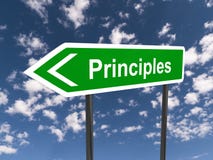
#1 We see the individual first NOT the illness !
#2 We recognize that Mental Illnesses are Medical Issues !
#3 We recognize Mental Illness is Traumatic !
#4 We aim for better coping skills !
#5 We find faith in sharing experiences !
#6 We REJECT stigma and DO NOT tolerate discrimination !
#7 We won't judge anyone elses pain as less than our own !
#8 We forgive ourselves and reject guilt !
#9 We embrace humor as healthy !
#10 We accept we can't solve all problems !
#11 We expect a better future in a realistic way !
#12 We will NEVER give up HOPE !
Did you know that more than 43 million adults in our country struggled with Mental Illness in the past year? Half of us will meet the criteria for a diagnosable Mental Health condition at some point in our lives; one quarter by the age of 14 yrs. old.
When it comes to Mental Health conditions, silence is not golden. Silence breeds stigma, and stigma prevents people from seeking help.
Together, we can fight stigma and encourage our family, friends, co-workers, and neighbors to seek help when they need it. Most Mental Illness begins in adolescence, yet it can take years for individuals to seek treatment. Stigma prevents people from seeking life-saving treatment and support. Mental Health Support Community hopes that you will Register with us to inspire each other and to talk about Mental Illness, so that individuals won’t be afraid to seek the help they need.
“Each person holds so much power within themselves that needs to be let out. Sometimes they just need a little nudge, a little direction, a little support, a little coaching, and the greatest things can happen.” -Pete Carroll-
Psychiatrist:
A Psychiatrist is a doctor who specializes in Emotional, Behavioral, or Mental Disorders..
Therapist/Psychologist:
Therapy helps you learn Self-Awareness and how to process your Emotions. There are many types of Therapy including Talk Therapy or Therapies where you learn specific Coping Skills such as DBT, CBT, and Mindfulness.
See a Mental Health Professional if you experience changes in your behavior, or if your loved ones notice it as well, a diagnosis is the first step to learning more about what you have, and how to treat it. Take notes about what symptoms you experience, and bring them with you to your appointment. Use this Mood Disorder Questionnaire as a starting point: International Bipolar Foundation
All types of Mood Disorders have been associated with Suicide. These include Bipolar Affective Disorder, Depressive Episode, Recurrent Depressive Didorder, and persistent Mood Disorders, (e.g. Cyclothymia, and Dysthymia), which form categories F31-F34 in ICD-10 (1). Suicide is therefore a significant risk in unrecognized Depression. Depression has a high prevalence in the general population and is not recognized by many as a Disease. It is estimated that 30% of patients seen by a Physician are suffering from Depresson. Roughly 60% of those who do seek treatment initially contact a General Practitioner. It is a special challenge for the Physician to work with both Physical Disease, and Psychological Disorders simultaneously. In many instances, Depression is masked and patients present only with the somatic complaints.
The term Mental Health is commonly used in reference to Mental Illness. However, knowledge in the field has progressed to a level that appropriately differentiates the two. Although Mental Health and Mental Illness are related, they represent different Psychological States.
Mental Health is “a state of well-being" in which the individual realizes his or her own abilities, can cope with the normal stresses of life, can work productively and fruitfully, and is able to make a contribution to his or her Community.
”1 It is estimated that only about 17% of U.S adults are considered to be in a state of optimal Mental Health.
"2 There is emerging evidence that positive Mental Health is associated with improved Health outcomes.
Mental illness is defined as “collectively all diagnosable Mental Disorders” or “Health Conditions that are characterized by alterations in thinking, mood, or behavior (or some combination thereof) associated with distress and/or impaired functioning.
”3 Depression is the most common type of Mental Illness, affecting more than 26% of the U.S. adult population.
"4 It has been estimated that by the year 2020, Depression will be the second leading cause of disability throughout the world!
"5 Evidence has shown that Mental Disorders, especially Depressive Disorders, are strongly related to the occurrence, successful treatment, and course of many Chronic Diseases!
"6 Many risk Behaviors for Chronic Disease; such as, Physical Inactivity, Smoking, Excessive Drinking, and Insufficient Sleep.
In the Health Care and Public Health Arena, more emphasis and resources have been devoted to Screening, Diagnosis, and Treatment of Mental Illness than Mental Health. Little has been done to protect the Mental Health of those free of Mental Illness. Researchers suggest that there are *INDICATORS* of Mental Health, representing three Domains.
These include the following:
"7 Emotional Well-Being :
Such as perceived life satisfaction, happiness, cheerfulness, peacefulness.
"8 Psychological Well-Being :
Such as self-acceptance, personal growth including openness to new experiences, optimism, hopefulness, purpose in life, control of one’s environment, spirituality, self-direction, and positive relationships.
"9 Social Well-Being :
Social acceptance, beliefs in the potential of people and society as a whole, personal self-worth and usefulness to society, sense of community.
The former Surgeon General notes that there are social determinants of Mental Health as there are social determinants of General Health that need to be in place to support Mental Health. These include adequate Shelter, safe neighborhoods, equitable jobs and wages, quality education, and equity in access to quality Health Care.
-
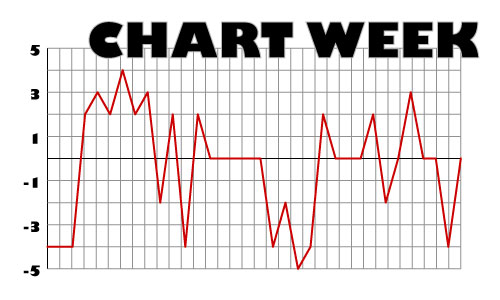
" MOOD CHART "
#10. Total loss of judgement, excessive spending, religious delusions and hallucinations.
#9. Lost touch with reality, incoherent, no sleep, paranoid and vindictive, reckless behavior.
HYPOMANIA
#8. Inflated self-esteem, rapid thoughts and speech, counter-productive, simultaneous tasks.
#7. Very productive, everything to excess (phone calls, writing, smoking, tea), charming and talkative.
BALANCED MOOD
#6. Self-esteem, good, optimistic, sociable, and articulate, good decisions, and get work done.
#5. Mood in balance, no symptoms of depression or mania. Life is going well and the outlook is good.
#4. Slight withdrawal from social situations, concentration less than usual, slight agitation.
MILD TO MODERATE DEPRESSION
#3. Feeling of panic and anxiety, concentration difficult and memory poor, some comfort in routine.
#2. Slow thinking, no appetite, need to be alone, sleep excessive or difficult, everything a struggle.
SEVERE DEPRESSION
#1. Feeling of hopelessness and guilt, thoughts of suicide, little movement, impossible to do anything.
# 0. Endless suicidal thoughts, no way out, no movement, everything is bleak, and it will always be like this...
" ANXIETY CHART "
1 = Panic Attack: shortness of breath, rapid heart beat, shaking limbs, sweating, etc...
2 = Very Anxious: sensations of symptoms arising.
3 = Anxious: overwhelming sense of worry.
4 = Somewhat Anxious: worried but controllable.
5 = Even: in limbo.
6 = O.K.: Things are calm right now.
7 = Calm and Relaxed: no doomed thoughts.
8 = Feeling Great: no thoughts apparent at this time of worry.

Bipolar or Manic Depressive Disorder is a Mood Disorder that causes radical emotional changes and mood swings, from Manic highs to Depressive lows. The majority of Bipolar individuals experience alternating episodes of Mania and Depression from a minor state of life, to lifelong disability. The information here should not be used as a substitute for seeking Medical care for Diagnose or Treatment. We are strictly Volunteered based. The Group is being created for all to come via "Multiple" Mental Disorders they may be going through with Bipolar Disorder. Bipolar Disorder and other serious Brain Diseases are an extreme challenge for the individual and the entire family.
Mental Health and Wellness disorders are illnesses that involve the body, mood, spirit, and thoughts! It affects how one eats, and sleeps, the way one feels about oneself, and the way one thinks about things! Sometimes referred to as Psychiatric or Psychologic Disorders, Mental Health Disorders are caused by complex interactions between Physical, Psychologic, Social, Cultural, and Hereditary influences. They involve disturbances in thinking, emotion, and/or behavior. Small disturbances in these aspects of life are common, but when such disturbances distress the person greatly, interfere with daily life, or both, they are considered Mental Illness or a Mental Health Disorder. The effects of Mental Illness may be long-lasting or temporary.
We believe that people become empowered to help themselves and others when they feel a part of something. Sharing in your journey with others will help take the focus off of yourself and in return I feel, and have heard others as well state that they felt much gratification that their story, and or struggles just may be for a reason, to help those struggling, and in reaching out to those whom don't have a voice yet! We offer to help those individuals diagnosed by sharing coping mechanisms, in hopes to learn from each other’s struggles, and possibly be able to lend a helping hand in helping someone else.... Communicating, sharing, and connecting with others in a Community will have a positive effect on healing in your life….
There's a strong link between good mental health and good physical health, and vice versa. In the other direction, depression and other mental health issues can contribute to digestive disorders, trouble sleeping, lack of energy, heart disease, and other health issues. There are many ways to keep your mind and mood in optimal shape. Exercise, healthy eating, and stress reduction techniques like meditation or mindfulness can keep your brain — and your body — in tip-top shape. When mood and mental health slip, doing something about it as early as possible can keep the change from getting worse or becoming permanent. Treating conditions like depression and anxiety improve quality of life. Learning to manage stress makes for more satisfying and productive days.
If you have been diagnosed with any Mental Health Disorder we 'welcome' you to this Peer Support Community. We offer you to give and gain Peer Support through your journey of Symptoms, Triggers, Treatment, and Recovery.
We do "NOT" participate in our Support Group Community as Professionals!
We are Advocates on The Road to Recovery!
YOU MUST BE 18 YEARS OR OLDER TO JOIN IN OUR SUPPORT GROUP COMMUNITY...
If you or someone you know needs immediate help in the U.S., call the line for hope to talk to someone live in your local area. They can listen to you and direct you to local resources if further assistance is needed. If someone has talked to you about suicide, and you believe they are currently a threat to themselves or someone else but won’t take your help, call 911!
1- (800)273-8255 …..1-800-273-TALK National Suicide Prevention Lifeline
1-(877)838-2838 …..1-877-Vet2Vet Veterans Peer Support Line
1-(800)784-2432 …..1-800-SUICIDA Spanish Speaking Suicide Hotline
1-(877)968-8454 …..1-877-YOUTHLINE Teen to Teen Peer Counseling Hotline
1-(800)472-3457 …..1-800-GRADHLP Grad Student Hotline
1-(800)773-6667 …..1-800-PPD-MOMS Post Partum Depression Hotline
1800 - 55 - 1800.... KIDS - HELP LINE
Conditions associated with INCREASED RISK of Suicide:
Death or terminal illness of relative or friend. Divorce, separation, broken relationship, stress on family. Loss of health (real or imaginary). Loss of job, home, money, status, self-esteem, personal security. Alcohol or drug abuse. Depression. In the young depression may be masked by hyperactivity or acting out behavior. In the elderly it may be incorrectly attributed to the natural effects of aging. Depression that seems to quickly disappear for no apparent reason is cause for concern. The early stages of recovery from depression can be a high risk period. Recent studies have associated anxiety disorders with increased risk for attempted suicide.
Emotional and behavioral changes associated with Suicide:
Overwhelming Pain: pain that threatens to exceed the person's pain coping capacities. Suicidal feelings are often the result of longstanding problems that have been exacerbated by recent precipitating events. The precipitating factors may be new pain or the loss of pain coping resources. Hopelessness: the feeling that the pain will continue or get worse; things will never get better. Powerlessness: the feeling that one's resources for reducing pain are exhausted. Feelings of worthlessness, shame, guilt, self-hatred, no one cares. Fears of losing control, harming self or others. Personality becomes sad, withdrawn, tired, apathetic, anxious, irritable, or prone to angry outbursts. Declining performance in school, work, or other activities. (Occasionally the reverse: someone who volunteers for extra duties because they need to fill up their time.) Social isolation; or association with a group that has different moral standards than those of the family. Declining interest in sex, friends, or activities previously enjoyed. Neglect of personal welfare, deteriorating physical appearance. Alterations in either direction in sleeping or eating habits. (Particularly in the elderly) Self-starvation, dietary mismanagement, disobeying medical instructions. Difficult times: holidays, anniversaries, and the first week after discharge from a hospital; just before and after diagnosis of a major illness; just before and during disciplinary proceedings. Undocumented status adds to the stress of a crisis.
Suicidal Behavior:
Previous Suicide attempts, mini-attempts. Explicit statements of suicidal ideation or feelings. Development of suicidal plan, acquiring the means, rehearsal behavior, setting a time for the attempt. Self-inflicted injuries, such as cuts, burns, or head banging. Reckless behavior. (Besides suicide, other leading causes of death among young people in New York City are homicide, accidents, drug overdose, and AIDS.) Unexplained accidents among children and the elderly. Making out a will or giving away favorite possessions. Inappropriately saying goodbye. Verbal behavior that is ambiguous or indirect: I'm going away on a real long trip., You won't have to worry about me anymore., I want to go to sleep and never wake up., I'm so depressed, I just can't go on., Does God punish suicides?, Voices are telling me to do bad things., requests for euthanasia information, inappropriate joking, stories or essays on morbid themes.
The majority of the population at any one time does not have many of the warning signs and has a lower suicide risk rate. But a lower rate in a larger population is still a lot of people - and many completed suicides had only a few of the conditions listed above. In a one person to another person situation, all indications of suicidality need to be taken seriously.
The Samaritans
Call If you are having thoughts of harming yourself or you are being abused, please call us. These are serious issues that are best handled in one-on-one conversations with counselors. Always Open! Counselors are ready for your call 24/7. 1-800-448-3000

Text with a counselor for free with the following carriers: AT&T, Verizon, T-Mobile, Sprint, Virgin, Cricket, Nextel, Boost, MetroPCS. (standard message & data rates may apply for other carriers)
Every day, 4PM to 1AM CST.
Text VOICE to 20121 to start.
Text STOP to opt out.
For more information about the service, text HELP to 20121.
For end user privacy and terms & conditions Visit Link Below :
Prevention Pays Text Enterprising Text Platform
Suicide Prevention / Immediate Online Phone # Support Listing by States and Countries Visit Link Below :
"USA" Listing by "State" Hot Line / and "Out of the Country International" Hot Line
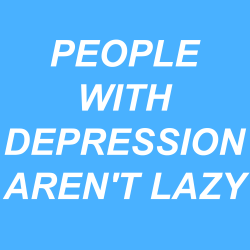
EVERY DAY HEALTH / MAJOR DEPRESSION RESOURCE CENTER
NIMH Depression Stats – NIMH Stats
WHO Global Stats – WHO
WHO Global Women Health Stats – Womens Health
“To most of those who have experienced it, the horror of depression is so overwhelming as to be quite beyond expression. . . if depression had no termination, then suicide would, indeed, be the only remedy. But. . . depression is not the soul’s annihilation; men and women who have recovered from the disease-and they are countless-bear witness to what is probably its only saving grace: it is conquerable.” William Styron
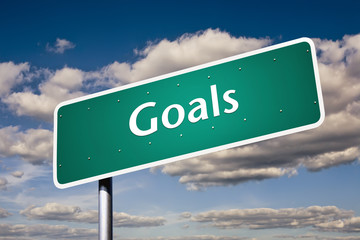
"Bipolar and Support Groups Goals":
SHARE THE AIR; We want all to have the opportunity to share!
GIVE BACK; We often benefit by offering support to others by sharing in our own struggles, triumphs, and experiences!
DIFFERENCES OF OPINIONS ARE OKAY; We are all entitled to our own point of view!
WE ARE ALL EQUALS; Accept all Cultural, Linguistic, Social, and Racial differences and promote their acceptance!
We do not participate in our Support Group / Community as Professionals, we do not instruct or advise. However we share in our own experiences. Only we know what is best for our own Health along with our Doctor's instructions!
IT''S OKAY NOT TO SHARE; People may just read. You do not have to share if you do not want to !
IT'S EVERYONE'S RESPONSIBILITY TO MAKE THE SUPPORT GROUP / COMMUNITY A SAFE HAVEN TO SHARE!
We respect confidentiality, treat each other with kindness, and show compassion!
The *Goal of Bipolar Support Groups . com* is that with Professional help "Support" greatly increases the chance of individuals suffering from Mental Illness to either begin, or continue on their way to, or through Recovery. Along with your Medically approved Treatment, we hope you Meet, Greet, Share, and Support with others who are dealing with the same struggles that come along with dealing with these types of Illnesses! We strive to limit the harm that a Mental Health Diagnosis can inflict by offering Peer Support through this Net-Work; by connecting people around the World to one another in order to share your own Fears, Medication Management, Possible Side Effects, Therapy, Joy's, and Sorrow's!
If you have been diagnosed with any Mental Health Disorder we Welcome you to this Peer Support Group / Community. We offer you to give, and gain Peer Support through your journey of Symptoms, Triggers, Treatment, and Recovery. We encourage you to share your journey of Therapy and form friendships with others who are battling the same fight that you are!
Support Group Credo :
Just as each individual is unique, so is their experience of a mood disorder. Through the simple act of listening to each other’s stories, we support each other. By sharing our experiences, we help each other find a real sense of belonging, better understand how mood disorders impact our lives and find coping and treatment strategies. By focusing on the strengths we have gained from our experiences, we promote hope and self-esteem. In our groups we:
Treat each other with kindness and compassion. Often times most of us feel vulnerable. Respect the opinions and experiences of others. We are generous to others in the sharing process. Do not judge. We try to put ourselves in the other person’s shoes. Work on our patience. Each of us tries to do the best we can at a given moment. Listen. We all want to feel heard. Speak only from our own experiences. As a result, we do not lecture or tell each other what to do or what is best for us. Understand that the recovery process is unique and personal for each individual ! Keep confidences, so that everyone feels safe to disclose their personal innermost feelings ! Maintain an environment that is strength-based, hopeful and empowering. Without hope we stop trying !
"Compassion is meant to be shared and spread through the unchanging truths of ones hope for friendship and support and understanding through many of our own creative ways. Infusing our fresh expression of our own faithful way in how to cope daily, hourly, or sometimes for me by the hour!"
*JmaC*
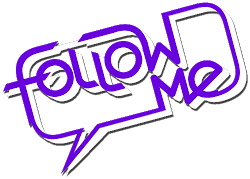 Bipolar Support Groups Blog / Up To Date Timely New New'S
Bipolar Support Groups Blog / Up To Date Timely New New'S

Positive psychological research has clearly highlighted the importance of investigating factors that contribute to well-being. One factor contributing greatly to psychological well-being is mindfulness, which has been related to a wide range of positive outcomes, including healthy self-esteem. Here, we present two studies that aim to extend prior research on mindfulness and self-esteem. In Study 1, we propose and test a theoretically derived model of the role that mindfulness plays in the prediction of self-esteem and life satisfaction. Four facets of mindfulness significantly predicted increased self-esteem, which in turn predicted overall life satisfaction. In Study 2, we extended this study by examining the direct effects of a brief mindfulness induction on state self-esteem, and found that experimentally enhancing state mindfulness led to an increase in state self-esteem. The two studies presented clearly demonstrate that mindfulness and self-esteem are related, and, importantly, that mindfulness training has direct positive effects on self-esteem. ">


The following links are listed to provide you with additional online mental health care information and counseling resources. The links are not endorsed or controlled by The Mental Health Support Community, and we are not responsible for the content provided on these sites.
Drug Index A - Z
The "Link" (resource) above have been provided to help narrow your search to specific, targeted drug information. Information is available for both consumers and healthcare professionals on over 24,000 prescription and over the counter medicines available primarily in the USA.
Find Drugs by Disease or Condition
Use this facility to find drugs used to treat a particular disease or condition.
Search the Drug Base / Data base by Class
A drug may be classified by the chemical type of the active ingredient or by the way it is used to treat a particular condition. Each drug can be classified into one or more drug classes.
Drugs by Side Effects
Search the Drug Side Effect Database.
Drugs by Pharma Companies
This page contains corporate information for pharmaceutical companies marketing products in the United States. Information includes company addresses, telephone numbers, stock quotes, links to corporate websites, lists of medicines, support and employment opportunities where applicable. Medications listed for each manufacturer or distributor may also be marketed under different names in other countries. For information about non-US medications, please visit the international drugs section.
Drugs by Dosage
Please note - Dosage information listed on the Drugs.com website should be used as a guideline only. Always consult your doctor or healthcare specialist before changing the dosage of any medicines.
Anxiety and Depresson Association of America
( ADAA )
CHADD
Search ADHD professionals, CHADD Support Groups,and Parent to Parent Certified Teachers.
American Psychiatric Association
What is Psychiatry?
Bipolar Disorder NewS
A resource for Bipolar Disorder and Depression.
NAMI
National Alliance Mentally Ill.
National Institute of Mental Health
Transforming the understanding and treatment of mental illnesses.
Mental Health America
Latest News, Events, & Policy Updates.
American Psychological Association
APA is the leading scientific and professional organization representing psychology in the United States. Our mission is to advance the creation, communication and application of psychological knowledge to benefit society and improve people's lives.
Suicide Prevention Resource Center
Effective prevention starts with you. Make a plan to prevent suicide. Find a suicide prevention program.Measure your program’s success. Improve suicide care for your patients. Take action after a suicide.
PTSD
What is PTSD? (FAQ)
Helping a Loved one with Bipolar Disorder
If someone close to you has bipolar disorder, your love and support can make a difference in treatment and recovery.
Find Help with the Cost of Medicine
The free NeedyMeds Drug Discount Card can help you save up to 80% off the price of your prescription medications.
Mental Health Law
Judge David L. Bazelon Center for Mental Health Laws
Mental Health References
Anxiety, Substance Abuse, Association and Institutes, ADHD, and Etc....
Alcohol and Other Drug Prevention Information, Self Help Information Sources, and Self-Help and Recovery Newsgroups, and More
Self Help, Recovery, News Groups, and Information Resources.
Mental Health and Behavior
MedLine Plus Trusted Health Information for You.
MH Reference
Learn how psychiatrists and other mental health professionals categorize ‘mental disorders’ — from the less common to the more widespread forms of psychological distress, such as depression, obsessive-compulsive disorder, and other mental disorders, this guide provides an index to the diagnostic labels.
FDA.gov
U.S Food and Drug Information.
Bipolar Disorder and Depression Information, Support, and Education
Bipolar Disorder, formerly known as Manic Depression, is a highly disruptive brain disorder. Since 1994 Pendulum.org has been the web's premier resource for bipolar information.
Psych Central Mental Health & Psychology Resources Online
Welcome to the oldest annotated directory of online psychology and mental health resources. This directory began in 1992 and was originally published in the Usenet newsgroups; it was transferred to its current Web-based format in 1995. Every resource contained herein has been personally reviewed by one of our Psych Central associate editors.
Dr.Phelps / *Psych Education*
PsychEducation.org began in 2001 as a way to explain tricky stuff to my patients and colleagues. I write in plain english, but also provide research references. Skepticism is welcome. A book version of the main ideas is now available from Norton press, with a version for patients and families out in December.
David Oliver / *Bipolar Central*
I put together this web site to help people who are living or supporting a loved one with bipolar disorder. Why did I do it? Here's a bit about my life story that will help you understand why bipolar disorder has become so important to me.
General Psychology Web Sites
The following site links have been grouped under the broad heading of "General" the reason being is that the many of the sites content are so broad and comprehensive, that in some cases that they do not easily fall within a particular "Psychological Category". All of the sites listed are recommended as "first stops" in your global search for psychology information.
Mental Health Today Recommended Links
Although Mental Health Today provides links to other sites, we do not take any responsibility for their content, claims, or representations.
Psych Pedia
GoodTherapy.org is not intended to be a substitute for professional advice, diagnosis, medical treatment, or therapy. Always seek the advice of your physician or qualified mental health provider with any questions you may have regarding any mental health symptom or medical condition. Never disregard professional psychological or medical advice nor delay in seeking professional advice or treatment because of something you have read on GoodTherapy.org.
Clinical Trials.gov
ClinicalTrials.gov is a registry and results database of publicly and privately supported clinical studies of human participants conducted around the world. Learn more about clinical studies and about this site, including relevant history, policies, and laws.
Test and quiz whether you have ADULT Attention Deficit Disorder (ADD) or Attention Deficit Hyperactivity Disorder (ADHD).
This quiz tests whether your CHILD or TEEN may have Attention Deficit Disorder ( ADD) or Attention Deficit Hyperactivity Disorder (ADHD).
Bipolar Screening Quiz ... In order for the results of this quiz to be most accurate, you should be 18 or older.
This test will help determine if you may suffer from symptoms associated with Borderline Personality Disorder.
Depression Screening Test. By Ivan Goldberg, M.D.
Use this test to help determine if you have an Eating Disorder.
Mania Quiz. By Ivan Goldberg, M.D.
Discover whether you suffer from an Obsessive-Compulsive Disorder.
News & Experts ...16-Type Jungian Personality Test ... questions for the most accurate score possible.
Scientifically test whether you have Post-Traumatic Stress Disorder (PTSD).

Mindful Web Site.
The Mindfulness Insitute.
Mindful Exercises.
Mindful Institute.
Greater Good: The Science of a Meaningful Life.
Christopher Germer, PhD, Author of The Mindful Path to Self-Compassion.
Mindful Awareness Research Center at University of California Los Angeles.
University of California at San Diego Center for Mindfulness.
Insight Meditation Society.
Spirit Rock Meditation Center.
Insight Meditation Community of Washington.
Western Buddhist Teachings.
Meditation Resources.
How to Meditate Videos. Scroll Down to Bottom of Page....
Meditation Exercises.
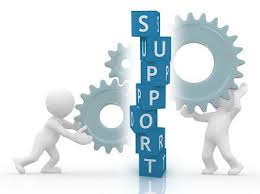
We're a Supportive Community. We are not arm Chair Therapists, but friends helping friends. Support here comes in many ways, whether it is offering or receiving it, just reading other people's experiences or sharing your own. Support can also be found in humor, artistic expression, games and sharing one another's interests.

Our Team Members are known for "Support" at Bipolar support groups. They are there to assist members and keep our site safe. Posts that are hurtful and judgmental are taken down. Our Support Team is on site the majority of the time. If problems occur in the absence of our Support Team Members, Administration can be paged by PMing. Safety also means safe from Administrative abuse. Administrative decisions are made by our Support Teams input. No one person can make unilateral decisions except the owner if the site is at risk. This is very rare.

Secure refers to anonymity. We supply software that prohibits guests viewing any part of the site; they must register with a valid email address to gain access. Unlike many other sites, our software also prevents search engines from gaining access to the site, so no one can Google a member's username and what they've posted. Security isn't full-proof however. Members have to take appropriate steps in order to protect their identities as well. Our software and policies provide the structure, the rest is up to each member.
Security and Password. You are solely responsible for maintaining the confidentiality of your password and account and for any and all statements made and acts or omissions that occur through the use of your password and account. Therefore, you must take steps to ensure that others do not gain access to your password and account. Our personnel will never ask you for your password.

Bipolar support groups is a privately owned site and is operated strictly by volunteers, which includes the owner and support staff. We strive to offer concise and verifiable information about Mental Illness, but we are not professionals. Do not use the information in this web site in any way to replace the advice of the doctor or professional who is caring for you.
All interactive areas within the Mental Health Support Community website operate on a peer to peer basis. The site owner, support staff, and chat operators are all volunteers. None have special training in their area, other than their own personal experience with the illness (and this can vary from one person with a Mental Health Disorder to another), personal education, and empathy for others.
Bipolar support groups accepts no responsibility for information posted on our Discussion Board, or Chat Lounge. The opinions expressed in articles within our site are those of the writers, and may not reflect the opinion of Mental Health Support Community. We are not responsible for the content within websites that are linked to or from Mental Health Support Community. We retain the right to reject materials that we feel are inappropriate, or to ban individuals whose behavior is likewise inappropriate within the interactive areas.
All individuals with a Mental Health Disorder are welcome within our community at their own discretion and at their own risk. Upon entrance to the Mental Health Support Community, and upon use of any of its information and/or interactive areas, you agree to release and hold harmless Mental Health Support Community, it's owner, and support staff from any and all damages and liabilities that may arise from your participation at our online support community.
/

© 2016' - 2028' Bipolarsupportgroups.com
